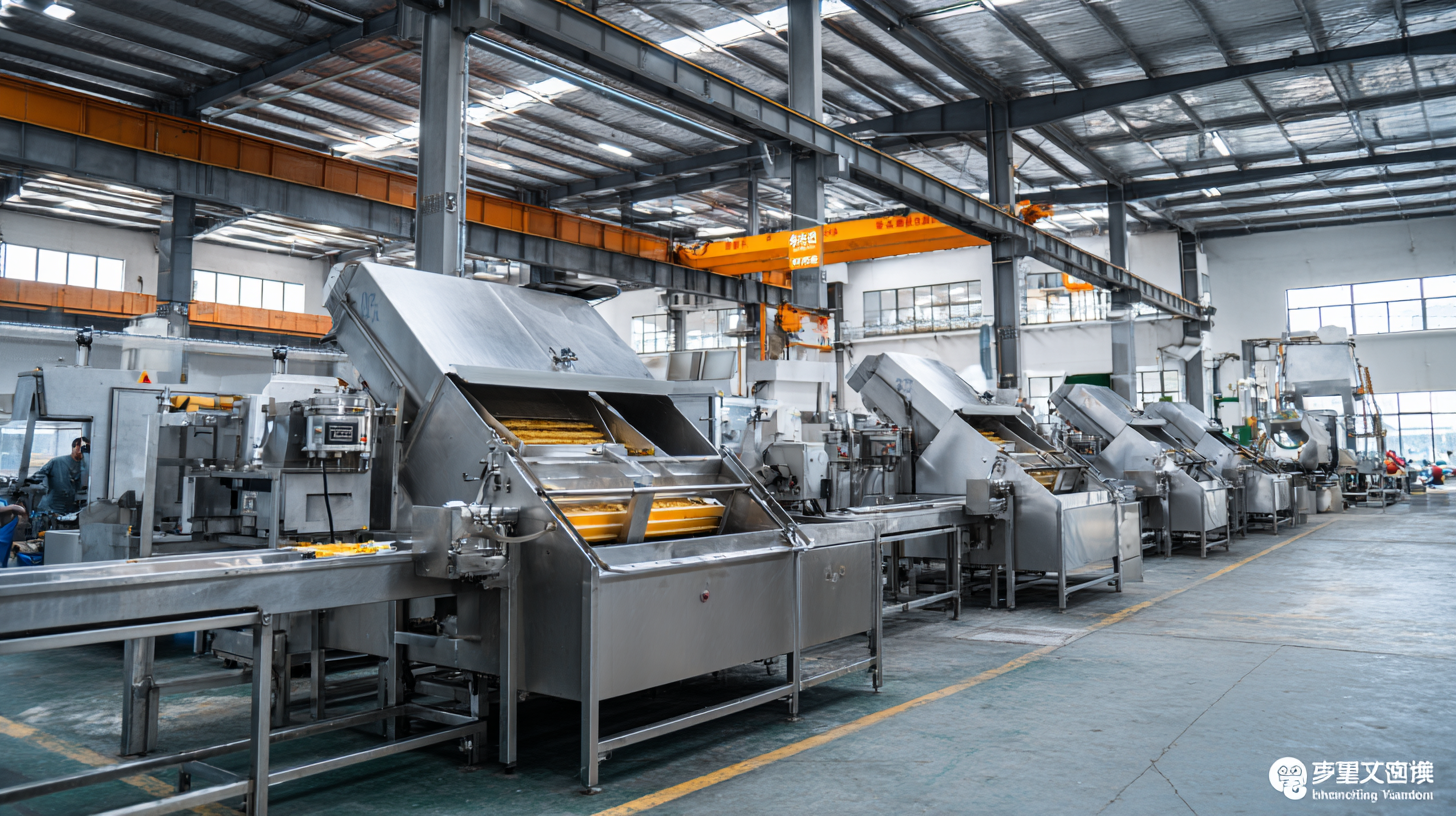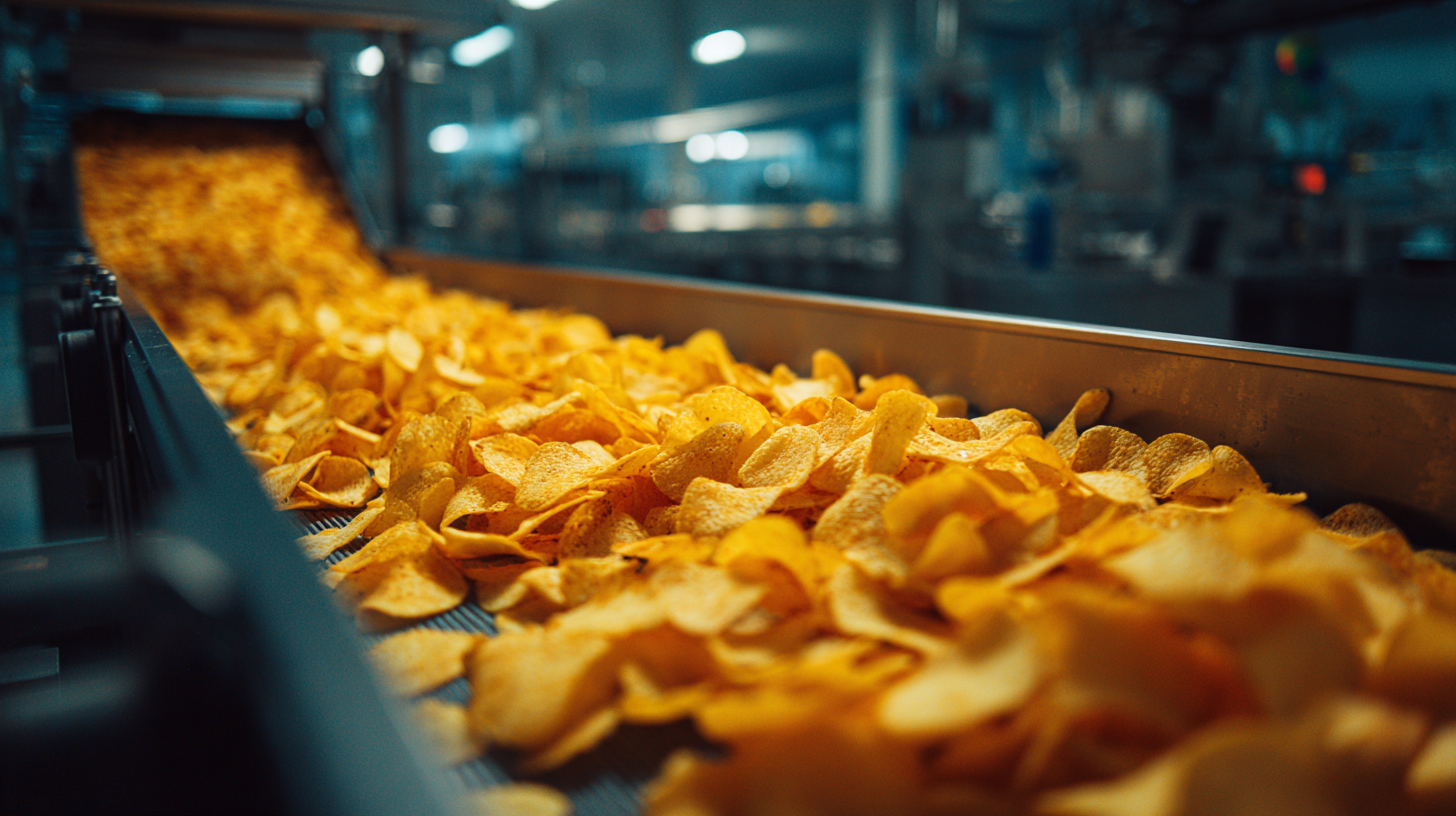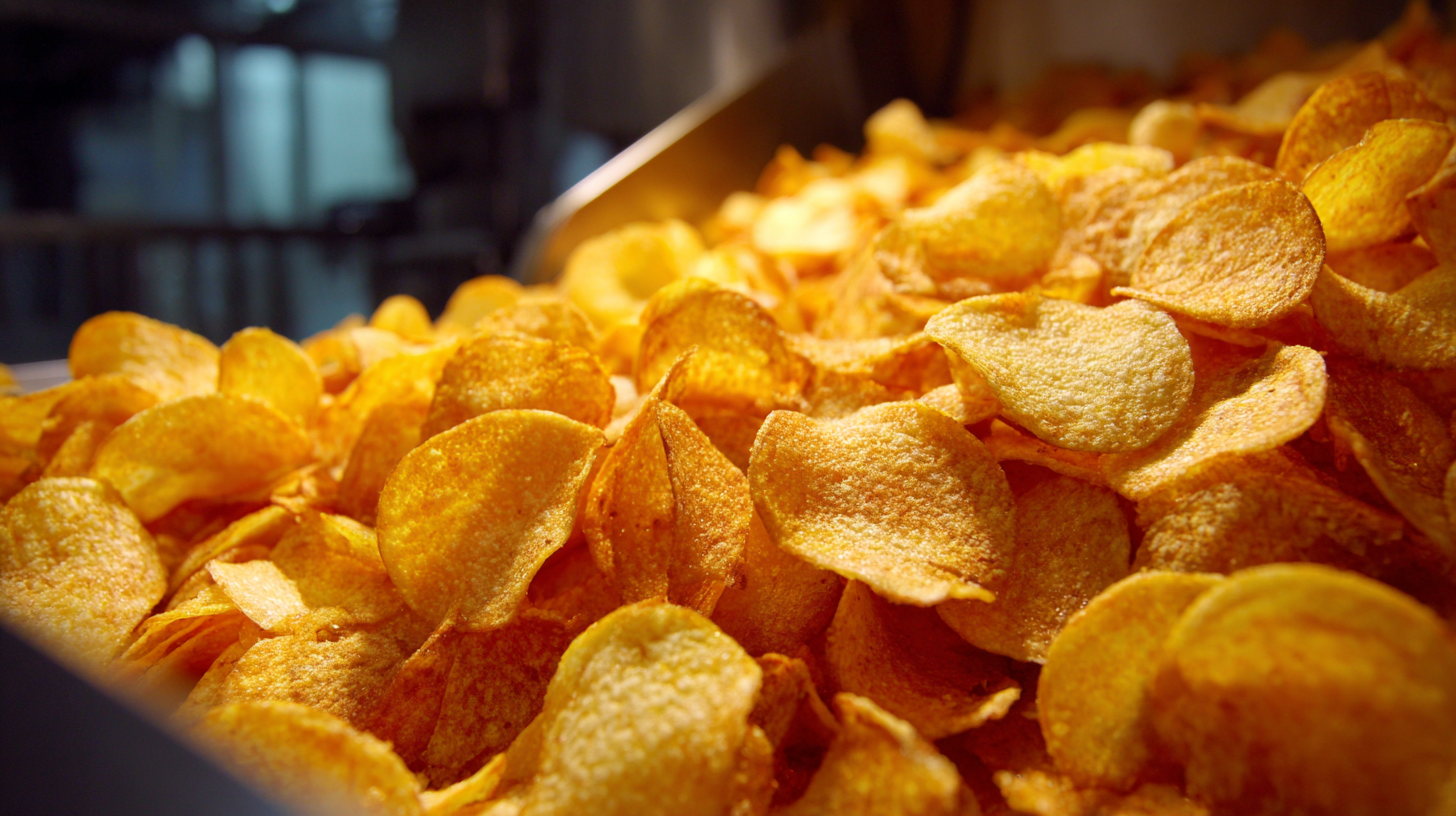
In the rapidly evolving landscape of food processing technology, the demand for efficient and precise equipment such as the Potato Chips Cutting Machine continues to surge.
According to a recent report by Grand View Research, the global potato processing market is expected to reach USD 108.47 billion by 2025, with an increasing emphasis on automation and quality consistency.
As manufacturers strive to enhance production capabilities and adhere to international standards, navigating global trade certifications becomes crucial.
With innovations in cutting techniques and materials, the right Potato Chips Cutting Machine can significantly influence product quality and cost-effectiveness.
This blog will explore the technological trends shaping the industry in 2025, while providing a comprehensive guide on how to choose the best equipment while ensuring compliance with essential trade certifications.

When it comes to sourcing the best potato chips cutting machine, understanding global trade certifications is paramount. These certifications act as a stamp of approval, ensuring that food machinery meets specific safety, quality, and efficiency standards recognized worldwide. For manufacturers and importers, compliance with these certifications not only enhances product credibility but also opens doors to international markets. Machines that carry such certification signals to buyers that they adhere to stringent regulations, ultimately leading to confidence in their operational longevity and performance.

Moreover, global trade certifications play a critical role in fostering consumer trust. In the food industry, where hygiene and safety are non-negotiable, machines that conform to recognized standards help mitigate risks associated with food contamination and processing errors. This transparency benefits everyone in the supply chain, from manufacturers to end consumers. As a result, investing in a certified potato chips cutting machine not only paves the way for compliance with local and international regulations but also positions a brand as a responsible player in the competitive food processing market.
When investing in a potato chips cutting machine, understanding the key certifications can help ensure that your equipment meets international food safety and quality standards. One of the most important certifications to consider is the ISO 22000, which focuses on food safety management systems. This certification indicates that the machine adheres to stringent hygiene and safety practices, crucial for maintaining the quality of potato chips during the cutting process.
Additionally, look for machines that hold CE marking, particularly if you're operating within Europe. This certification signals that the equipment complies with EU safety, health, and environmental protection standards, assuring you that your potato chips cutting machine is safe to operate. Other certifications, such as NSF and FDA approvals, can further reinforce the machine’s reliability by ensuring it meets specific health and safety requirements essential for food processing equipment.
Prioritizing these certifications not only enhances your production quality but also instills confidence in your business operations, paving the way for a successful venture in the potato chip industry.
When selecting a potato chips cutting machine, evaluating supplier reliability and quality assurance standards becomes crucial. In today's global trade, a dependable supplier not only ensures timely delivery but also guarantees machine durability and efficiency. Look for suppliers with verifiable experience in the industry, consistent positive customer feedback, and established relationships with recognized brands. This can indicate stability and reliability in their manufacturing processes.
Tip: Always request certifications such as ISO 9001 or CE marks from potential suppliers. These certifications reflect adherence to international quality management standards and safety regulations. Additionally, don’t hesitate to ask for references from their current clients. A supplier who is confident in their product’s performance will readily provide this information.
Furthermore, inspect the quality assurance protocols the manufacturer employs during production. Rigorous testing phases and quality checks can dramatically influence the performance of your cutting machine. A supplier that prioritizes stringent quality measures is one that can minimize operational disruptions and maintain consistent output.
Tip: Schedule a factory visit if possible to observe the production environment and quality control processes firsthand. This not only builds trust but also provides insight into the supplier's commitment to producing worthy machines.
When looking for the best potato chips cutting machines, a comparative analysis of global suppliers reveals significant insights into product quality, efficiency, and compliance with international trade certifications. Recent market reports indicate that the global potato processing equipment market is anticipated to grow at a CAGR of 5.3% between 2023 and 2030, emphasizing increased demand for advanced cutting machines. Suppliers from countries like China, Germany, and the United States are dominating the industry, each offering unique technological advancements and quality assurance certifications such as ISO and CE.
Tip: When evaluating suppliers, consider their certifications and customer feedback to ensure the machine meets not only your production needs but also quality standards. Additionally, examining the after-sales support and warranty services can provide insight into the long-term reliability of the equipment.
Another key factor in the comparative analysis is the pricing and operational efficiency of these machines. A recent study showed that machines equipped with automated cutting technology can reduce labor costs by up to 30% while improving product consistency, making them a worthwhile investment. Therefore, understanding the cost versus performance ratio can guide businesses in selecting the most suitable supplier for their potato chips production needs.
Tip: Always request a demo or trial period before making a purchase to evaluate the machine’s performance firsthand, helping to ensure that it fits your production line effectively.
In the dynamic landscape of potato chips processing equipment, the trends and innovations in certifications play a crucial role in ensuring quality and compliance. As manufacturers strive to meet the evolving demands of health-conscious consumers, certifications for cutting machines become essential. New regulations focus on the sustainability and safety of production processes, reflecting a shift towards environmentally friendly practices. This results in innovations in machinery design that integrate assessments for energy efficiency and raw material sourcing, ensuring that the certifications align with industry standards.

Moreover, the global potato industry is witnessing a transformation, characterized by increased investment in technology and production capabilities. Recent reports highlight the significant growth potential within the sector, driven by rising consumer preferences for healthier snack options. As manufacturers adapt to these market changes, they are increasingly inclined to pursue certifications that not only enhance product reliability but also strengthen their brand presence in a competitive market. The emphasis on certifications reflects a broader trend toward transparency and trust in food processing, aligning with the industry's ongoing innovations.